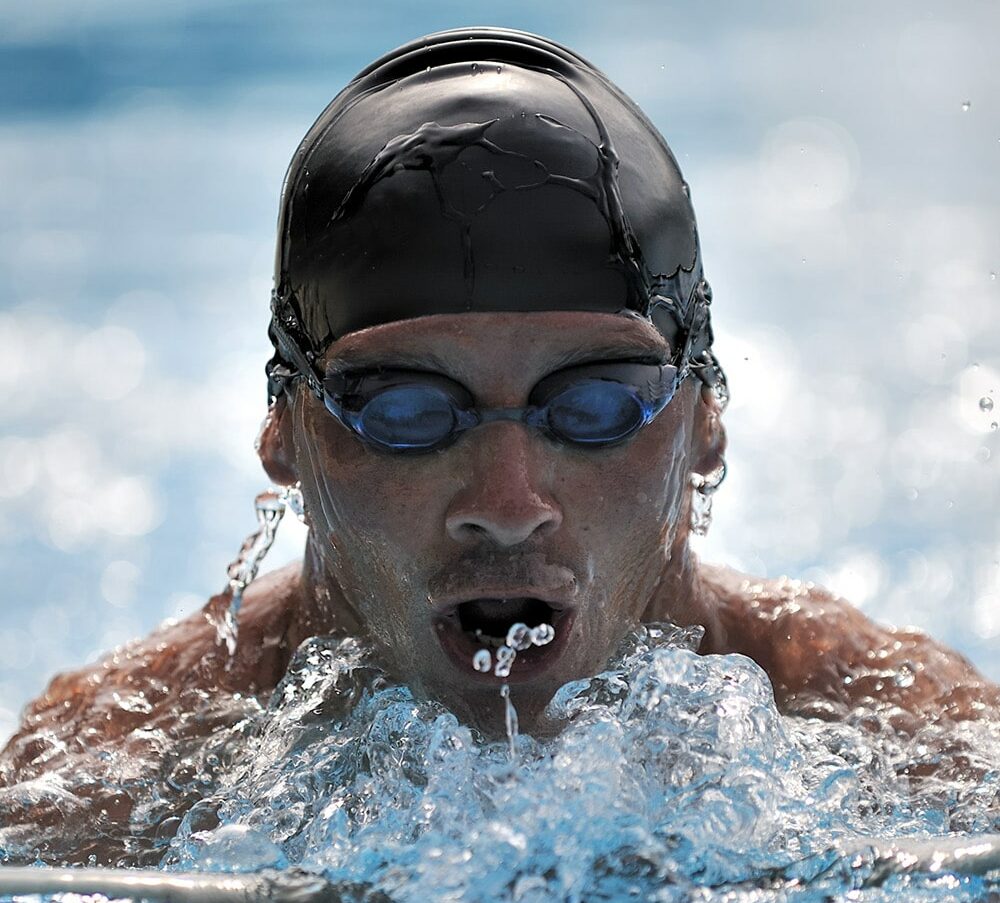Swimming is fun! It is also a vital life skill.
Unlike many other sports, everyone can swim no matter your age – from babies to the more mature!
Due to the weightlessness of the body when in the water, swimming provides a great opportunity for people to participate even if they are injured or disabled. It is also a great form of exercise during pregnancy.
Just being active in the pool is good for our health, so when you start don’t worry about how fast you are, just keep moving and have fun whilst doing so.
Aside from these reasons it also provides a wealth of other health benefits, both mental and physical.
Physical Benefits
It is a great form of cardiovascular exercise which can help guard against a multitude of health issues including heart disease, high blood pressure, stroke, high cholesterol, and type II diabetes. It is also excellent for building lung capacity.
Swimming activates the large muscle groups that require lots of oxygen to perform their task and in this way the heart rate increases alongside lung efficiency.
Mental Benefits
As with many other forms of exercise, swimming releases endorphins.
These are natural feel-good hormones that can increase positivity, lower stress, boost the immune system function and promote a sense of wellbeing and happiness.
Many people can find that it helps with anxiety, depression and other mental health issues.
Swimming provides a great opportunity to switch off and distract the mind from everyday worries, even for a short while.
When we swim we also engage almost all of our senses – sight, sound, touch and smell. This all provides a great distraction away from the stresses of modern technology and the screens of our phones and computers.
We can totally escape and focus on the motion of the water on our skin, creating a massage-like sensation, encouraging relaxation and allowing our imagination to wander and escape.
For general fitness, how should I start swimming?
There is no doubt about it, swimming is quite a technical sport but it is welcoming for people of all abilities.
When pools reopen, I would recommend swimming at least twice a week, and start off by focusing on controlling your breathing.
By continuously breathing out through your nose while your face is submerged, you will be able use the limited time when you turn your head above water to inhale only – which will mean you’re less likely to be gasping for breath!
If you are nervous about swimming, or simply want to improve, you can find a swim coach and book a few private lessons to help you learn the technique.
Once you have improved and feel confident, joining a local swimming club can provide some camaraderie and interaction with others in a club environment.
For those that want to progress and enjoy a competitive spirit swimming can provide ample opportunities for challenging yourself amongst fellow club mates or even entering some races.
As a competitive triathlete I cannot wait for the pools to re-open.
Swimming is my weakest discipline but also one that provides me with an opportunity for active recovery from the demands of my intense run and cycle training.
This year I am determined to bring my swim up to the same level as my bike and run by using the swim analytics of the INCUS Nova to provide feedback to help refine my technique and efficiency – this clever little device has been burning a hole in my swimming bag for the last few months and I am itching to put it to the test!
Any tips for making swimming more exciting?
Open water or wild swimming is another alternative that is becoming increasingly popular. It is an excellent alternative to the monotony of a swimming pool for those that get bored.
There are many lakes and organised open water swimming facilities that provide safe environments to swim in whilst still being in the great outdoors.
You need to be a competent swimmer before attempting to swim outdoors and although a wetsuit is worn by many and can offer a degree of stability, warmth and buoyancy in the water it is by no means essential.





